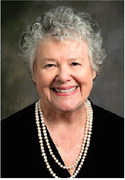
Share This Article On Social Media:
Explore Similar Categories:
 By Mary Wakefield Buxton
By Mary Wakefield Buxton
Urbanna, Va.— Seldom have I been so upset at hearing what my fellow Americans relate as I was this month. But I was on the verge of tears as a panel of elderly area blacks recounted a few weeks ago at the Middlesex Historical Courthouse in Saluda their memories of integration of area public schools.
History is painful. As I sat on the hard wood pew-like benches at the back of the courthouse, hearing one atrocious memory after another, my head ached, my back was sore and my legs cried out for better circulation. I so wished to get up and walk out of the room and far away from what I was hearing.
I’m a history major and all my life I have read history with great interest. I enjoy reading various accounts of the story of man. But it’s one thing to re ad history out of a book, to merely flip page by page through the horrible things man has done to his fellow man throughout the ages. But actually hearing history that took place in my own lifetime right here in Middlesex County from those whose voices still occasionally quivered at their traumatic memories . . . it is tough to do.
How sad that during the painful years of integrating public schools in Virginia it was the children who were the soldiers, a small, sturdy army to be sure, as fallible and vulnerable as any one of us were in our youth who carried on their slight shoulders the burden of seeing to it that the Supreme Court decision of Brown vs. Board of Education was actually implemented in the Commonwealth. And, oh, how they suffered . . . along with their parents who simply wanted what white parents wanted—better education and more opportunities for their children.
The program, emceed by William and Mary history professor Brian J. Daugherity, was sponsored by the Middlesex NCAAP, Middlesex County Museum and Historical Society, and the Middle Peninsula African-American Genealogical & Historical Society. It included showing of a film “Green vs. New Kent County,” which was a case that went all the way to the Supreme Court in a decision that called for immediate full integration of public schools. It was a Middlesex County native, an area minister, Dr. Calvin Green, that filed the initial suit.
The film gave a short history of the Brown vs. Board of Education decision, which came in 1954 stating that separate but equal schools were not equal. But even after this momentous decision, schools in the
South did not hasten to integrate. Local school boards left the problem of getting equal education to black parents to enroll in “white schools” according to the “Freedom to Choose” program. Yet the Commonwealth began a program known as “Massive Resistance,” which actually saw public schools shut down rather than integrate, such as in Prince Edward County.
Dr. Green, a Korean War Vet, school teacher and president of the local NAACP, and others took action. He filed a suit in 1965 against the school board claiming black parents did not have “Freedom of Choice” in public education. Federal Judge Merhige Jr. in Richmond heard the case and agreed, which initiated the process that finally ended “white” and “black” schools. I was a young wife at that time just home from my husband’s Navy stint during the Vietnam War and working to put my husband through law school. I was having my own problems adjusting to life in Virginia and becoming a lady that could fit into the conforming Buxton family and pervasive Virginia society. I well remember Judge Merhige and how hugely unpopular he was. He ordered school busing to achieve integration, which infuriated white parents who did not want their children bused across town. And who could blame them? They perhaps did not realize that black children for years had been bused to “black” schools often far away from their neighborhoods.
The film contained Judge Merhige’s comments on the case. He related emotions were so intense that he had to send his family out of the country in order to protect them while he needed federal marshals living 24/7 with him for several years.
The result of the Dr. Green’s lawsuit meant instant loss of jobs for not only Mrs. Green but the parents of those who had joined in on th e suit. “I was working at a local seafood company,” one parent on the panel related. “I was fired.” She had to seek employment in Williamsburg to exist. Her remark reminded me how feminists suffered as they agitated for the right to vote a century ago. “But we survived,” she added.
Meanwhile the suit worked its way up to the U.S. Supreme Court. In 1968 the court said the Freedom of Choice plan that left the burden of registering black children in “white” schools up to black parents was not feasible. It was now time for local school boards to close down “black” and “white” schools, integrate students and faculty, and begin serving all Americans.


